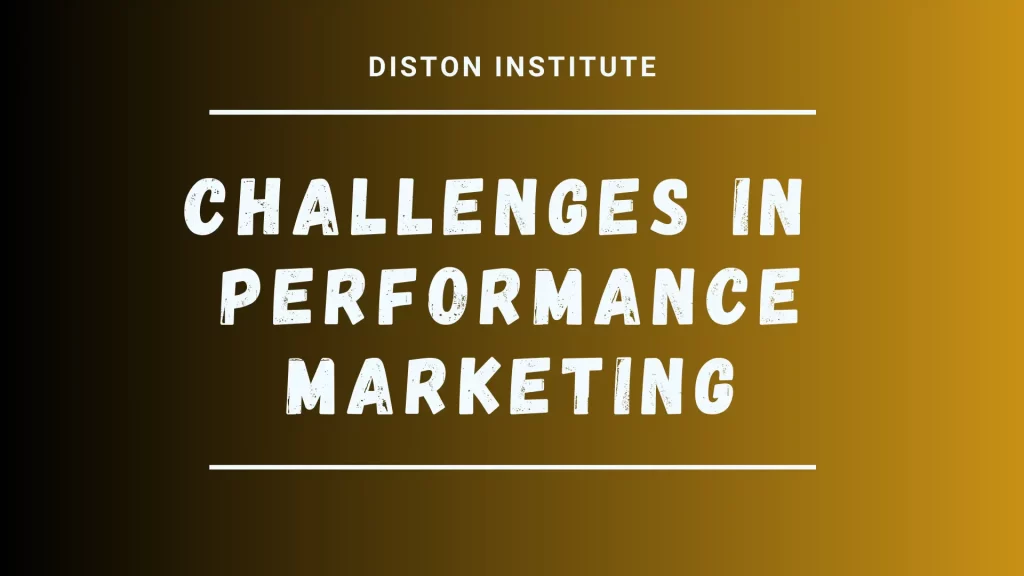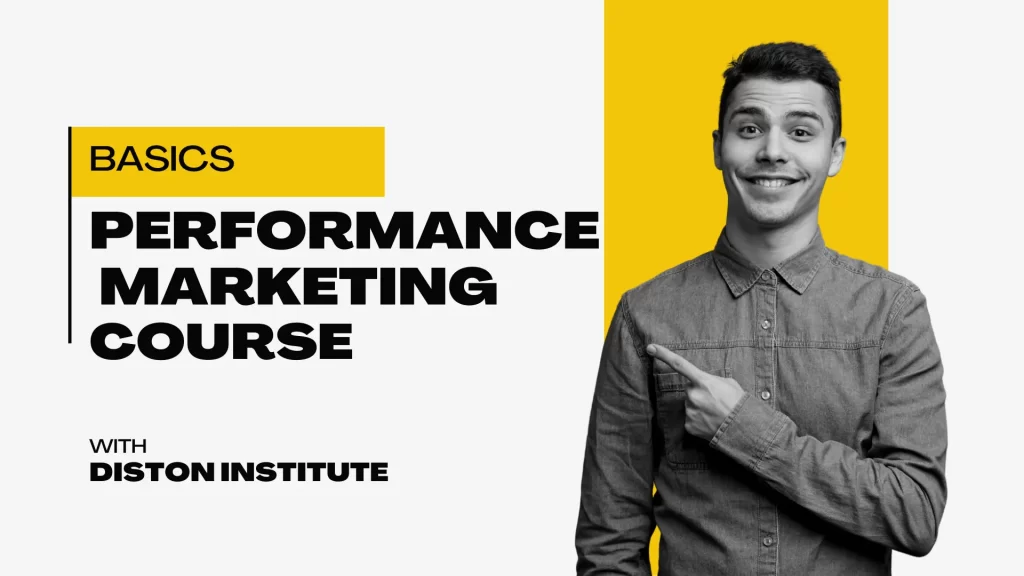Performance marketing in digital marketing has emerged as a critical strategy for businesses aiming to achieve measurable results. Unlike traditional marketing methods, performance marketing focuses on tangible outcomes and direct returns on investment (ROI). This comprehensive guide explores the concept, benefits, strategies, and key metrics associated with performance marketing, providing a thorough understanding of its role in the digital marketing landscape.
What is Performance Marketing?
Performance marketing in digital marketing is a results-driven approach where advertisers pay for specific actions such as clicks, leads, or sales. This model is beneficial for both advertisers and publishers, as payments are based solely on completed actions rather than estimated reach or impressions. Performance marketing leverages various digital channels, including search engines, social media, and affiliate networks, to achieve its goals.
Key Components of Performance Marketing in Digital Marketing
- Pay-Per-Click (PPC) Advertising: When an advertisement is clicked, advertisers are charged a fee. PPC is widely used on platforms like Google Ads and Bing Ads.
- Affiliate Marketing: This involves partnering with affiliates who promote products or services in exchange for a commission on generated sales or leads.
- Social Media Advertising: Utilizing social media platforms like Facebook, Instagram, and LinkedIn to target specific demographics with performance-based campaigns.
- Email Marketing: Sending targeted email campaigns to drive conversions and measure success through open rates, click-through rates, and conversion rates.
- Content Marketing: Creating and distributing valuable content to attract and engage a target audience, with performance measured through engagement metrics and conversion rates.
Benefits of Performance Marketing in digital marketing

Performance marketing offers numerous advantages, making it a preferred choice for many businesses looking to optimize their digital marketing efforts.
1. Measurable Results
One of the primary benefits of performance marketing in digital marketing is the ability to measure results accurately. Marketers can track every click, lead, and sale, allowing them to gauge the effectiveness of their campaigns in real-time. This data-driven approach enables continuous optimization and improved ROI.
2. Cost-Effective
Performance marketing is inherently cost-effective because advertisers only pay for actual results. This ensures that marketing budgets are spent efficiently, reducing the risk of overspending on ineffective campaigns.
3. Targeted Approach
By leveraging data and advanced targeting options, performance marketing campaigns can reach specific audiences more effectively. This ensures that marketing messages are delivered to individuals who are most likely to convert, enhancing the overall success rate of campaigns.
4. Flexibility and Scalability
Performance marketing campaigns can be easily scaled up or down based on performance data. This flexibility allows businesses to adjust their strategies in response to changing market conditions and consumer behavior.
5. Enhanced Transparency
With performance marketing, advertisers have access to detailed reports and analytics, providing complete transparency into campaign performance. This level of insight is crucial for making informed decisions and optimizing marketing efforts.
Key Strategies in Performance Marketing
Implementing a successful performance marketing campaign involves several key strategies that help maximize results and achieve business goals.
1. Defining Clear Objectives
The first step in any performance marketing campaign is to define clear, measurable objectives. Whether the goal is to drive website traffic, generate leads, or increase sales, having specific targets helps guide the campaign strategy and measure success.
2. Selecting the Right Channels
Choosing the appropriate digital channels is crucial for reaching the target audience and achieving desired outcomes. Different channels, such as search engines, social media, and email, offer unique advantages and should be selected based on campaign objectives and audience preferences.
3. Creating Compelling Content
Content is at the heart of performance marketing. Creating engaging and relevant content that resonates with the target audience is essential for driving conversions. This includes well-crafted ad copy, informative blog posts, and visually appealing social media content.
4. Leveraging Data and Analytics
Data plays a pivotal role in performance marketing. By leveraging analytics tools, marketers can track campaign performance, identify trends, and make data-driven decisions. This continuous monitoring and optimization process ensures that campaigns remain effective and deliver optimal results.
5. Implementing A/B Testing
A/B testing involves creating multiple versions of an ad or landing page and testing them against each other to determine which performs better. This method helps refine marketing strategies and improve conversion rates by identifying the most effective elements.
6. Utilizing Automation Tools
Marketing automation tools can streamline various aspects of performance marketing, from ad placement to email campaigns. These tools enhance efficiency, reduce manual workload, and ensure consistent delivery of marketing messages.
Key Metrics in Performance Marketing

Tracking and analyzing key metrics is essential for evaluating the success of performance marketing campaigns in digital marketing. The following are some crucial parameters to keep an eye on:
1. Click-Through Rate (CTR)
The percentage of users who click on an advertisement after seeing it is measured by CTR. A high CTR shows that the advertisement is interesting and relevant to the target demographic.
2. Conversion Rate
The percentage of users who finish a desired action, like completing a form or making a purchase, is determined by the conversion rate. This metric is crucial for assessing the effectiveness of a campaign in driving actual results.
3. Cost Per Acquisition (CPA)
The cost of obtaining a new lead or customer is determined by the CPA. It helps determine the efficiency of a campaign in generating conversions relative to the amount spent.
4. Return on Investment (ROI)
ROI measures the profitability of a campaign by comparing the revenue generated to the amount spent. A positive ROI indicates that the campaign is delivering a return on the investment.
5. Lifetime Value (LTV)
LTV calculates the total revenue that a client is expected to bring in during the course of their relationship. This metric is valuable for understanding the long-term value of acquiring new customers through performance marketing.
6. Bounce Rate
The bounce rate measures the percentage of visitors who leave a website after viewing only one page. A high bounce rate may indicate that the landing page is not effectively engaging visitors or meeting their expectations.
Challenges in Performance Marketing

While performance marketing offers numerous benefits, it also comes with its own set of challenges. Understanding these challenges is crucial for developing effective strategies and achieving desired results.
1. Ad Fraud
Ad fraud, such as click fraud or impression fraud, can significantly impact the performance of digital marketing campaigns. Implementing robust fraud detection and prevention measures is essential to protecting campaign integrity and ensuring accurate reporting.
2. Ad Blockers
The increasing use of ad blockers can limit the reach of performance marketing in digital marketing campaigns. Marketers need to create non-intrusive, high-quality ads that provide value to users to mitigate the impact of ad blockers.
3. Privacy Regulations
Data privacy regulations, such as the General Data Protection Regulation (GDPR) and the California Consumer Privacy Act (CCPA), impose strict requirements on data collection and usage. Compliance with these regulations is essential to avoid legal issues and maintain consumer trust.
4. Market Saturation
In highly competitive markets, performance marketing campaigns may face challenges in standing out and capturing the audience’s attention. Continuous optimization and innovative strategies are necessary to overcome market saturation and achieve success.
Future Trends in Performance Marketing in Digital Marketing

Performance marketing in digital marketing is a field that is always changing due to developments in technology and shifting consumer behavior. Here are a few upcoming trends to be aware of:
1. Artificial Intelligence (AI) and Machine Learning
AI and machine learning technologies are transforming performance marketing by enabling more accurate targeting, personalized experiences, and predictive analytics. These technologies will continue to play a significant role in optimizing campaign performance.
2. Voice Search Optimization
As voice search becomes increasingly popular, optimizing performance marketing campaigns in digital marketing for voice search will be essential. This includes creating voice-friendly content and leveraging voice search advertising opportunities.
3. Video Marketing
A growing factor in digital marketing is video content. Incorporating video into performance marketing in digital marketing strategies can enhance engagement and drive higher conversion rates.
4. Influencer Marketing
Influencer marketing is evolving into a performance-driven model where influencers are compensated based on the results they generate. This trend will continue to grow, offering new opportunities for performance marketers.
5. Enhanced Data Privacy
With growing concerns about data privacy, performance marketers will need to adopt more transparent and ethical data practices. Building trust with consumers through transparent data usage will be crucial for long-term success.
performance marketing job: Manager
The average salary for a performance marketing manager in India varies depending on the source, but here’s a quick breakdown:
| Range | Possible Average |
|---|---|
| ₹14.7 lakhs to ₹45.0 lakhs annually | ₹18.1 lakhs to ₹23.6 lakhs annually |
| (approx. $19,900 to $60,600) | (approx. $24,400 to $31,500) |
You can apply for jobs on some famous job portals, such as Indeed, Linkedin, Internshala, Naukri.com. These are the famous job portals that are running in India.
Becoming the Manager:
- Experience is King: Build a strong foundation as a performance marketing specialist.
- Data Wizard: Master analytics tools and translate data into actionable strategies.
- Skill Up: Become an expert in popular platforms (Google Ads, Facebook Ads Manager).
- Show & Tell: Create a portfolio showcasing successful campaigns and improved ROI.
- Network & Connect: Build relationships with industry professionals to stay ahead of the curve.
What does Performance Marketing Manager in digital marketing do?
A Performance Marketing Manager is the quarterback of data-driven marketing campaigns in India. They’re responsible for the entire lifecycle, from strategy to results. Here’s a breakdown of their key role:
1. Strategist & Planner:
- Develops performance marketing plans that align with business goals.
- Chooses the right channels (search ads, social media ads, etc.) based on the target audience and objectives.
- Sets campaign budgets and ensures efficient allocation of resources.
2. Data Analyst & Optimizer:
- Analyzes campaign data to identify trends and areas for improvement.
- Uses data insights to optimize campaigns for better results (conversions, leads, and sales).
- Monitors performance metrics like ROI (Return On Investment) and cost-per-acquisition (CPA).
3. Budget Master:
- Oversees campaign budgets across different platforms.
- Ensures cost-effectiveness and maximizes return on investment.
- Budget adjustment based on campaign performance and market trends.
4. Team Leader & Collaborator:
- Works with design, content, and sales teams to ensure all marketing efforts are aligned.
- Communicates campaign goals, progress, and results to stakeholders.
- Manages performance marketing specialists (if applicable) and provides guidance.
In essence, a Performance Marketing Manager in digital marketing is the conductor of the data-driven marketing orchestra, ensuring all instruments play in harmony to achieve the desired results.
Performance Marketing course: Digital Marketing

There are many courses on performance marketing in digital marketing available online, but finding the most reliable one can be challenging. Consider buying an offline course for better understanding, or you can also try online options.
Diston Institute provides the best offline courses as well as online courses; considering that this institute enhances your learning, it would be the best choice. Enroll in the best Digital Marketing Course in Dehradun.
performance marketing companies: Services
Companies specializing in performance marketing in digital marketing strive to deliver exceptional results that individuals often can’t achieve alone. As a result, many brands prefer to hire agencies to enhance their analytics and growth.
Diston Infotech is the company that provides the best services in the field of digital marketing, including Performance Marketing in digital marketing.
Brands that did performance marketing in digital Marketing
These are some brands that do performance marketing and make more profit:
- Nike
- Dove
- Amazon
- Apple
- Airbnb
- American Express
Tools to do performance Marketing in Digital Marketing

Performance marketing thrives on a data-driven approach, requiring a diverse toolbox to manage campaigns, track results, and optimize for maximum impact. Here’s a glimpse into some key tools that empower performance marketers:
- Campaign Management Platforms: Platforms like Google Ads, Facebook Ads Manager, and Microsoft Advertising allow you to create, manage, and optimize ad campaigns across various channels. They offer features for targeting, budgeting, ad creation, and real-time performance tracking.
- Analytics and Reporting Tools: Tools like Google Analytics, Adobe Analytics, and Looker Studio help you delve deeper into website traffic, user behavior, and campaign performance. These tools provide insights to identify trends, optimize campaigns, and measure ROI.
- Landing Page Builders: Platforms like Unbounce, Leadpages, and Instapage enable you to create high-converting landing pages that capture leads and drive conversions. These tools offer drag-and-drop functionality and easy integrations with marketing automation platforms.
- Affiliate Marketing Software: Solutions like ShareASale, Tapfiliate, and Post Affiliate Pro help you manage affiliate programs efficiently. They provide tools for recruiting affiliates, tracking their performance, and automating commission payouts.
- Email Marketing Platforms: Tools like Mailchimp, Constant Contact, and ActiveCampaign enable you to create and send targeted email campaigns to nurture leads, promote offers, and drive sales.
- Social Media Management Tools: Platforms like Hootsuite, Sprout Social, and Buffer help you schedule and publish content across various social media platforms, track engagement, and analyze follower demographics.
- Attribution Modeling Tools: Services like AdRoll, AppsFlyer, and Segment help you understand which marketing channels contribute most to conversions and provide insights for optimizing your marketing mix.
Remember, the ideal toolset depends on your specific needs and budget. Exploring these categories and researching specific platforms will help you choose the tools that best empower your efforts in performance marketing in digital marketing.
Conclusion
Performance marketing in digital marketing is a powerful approach that focuses on achieving measurable results and maximizing ROI. By leveraging data-driven strategies, targeted campaigns, and continuous optimization, businesses can drive significant growth and achieve their marketing objectives. Despite its challenges, performance marketing offers numerous benefits and opportunities for innovation, making it an essential component of any digital marketing strategy.
As the digital landscape continues to evolve, staying informed about emerging trends and adapting to new technologies will be key to maintaining a competitive edge in performance marketing. By embracing these changes and prioritizing transparency, efficiency, and customer engagement, businesses can harness the full potential of performance marketing in digital marketing to drive success in the digital age.
How do I learn performance marketing?
Master the Basics: Ground yourself in digital marketing fundamentals like SEO and social media marketing.
Embrace Data: Learn analytics platforms like Google Analytics to understand user behavior and campaign performance.
Educate yourself: Explore online courses, certifications, and industry blogs to gain in-depth knowledge.
Get hands-on: Experiment through personal projects, freelance work, or internships.
Never Stop Learning: Attend events, pursue advanced courses, and stay updated on industry trends.
Why is performance marketing important?
Measurable Results: Tracks & optimizes campaigns for maximum ROI.
Targeted Reach: Reaches the right audience for higher conversion rates.
Cost-Effective: Pays only for desired actions (clicks, leads, sales).
Increased ROI: Focuses on results for a higher return on investment.
Scalability: Easily adapts campaigns up or down based on needs & budget.
Who is the head of performance marketing?
The Head of Performance Marketing is the boss of results. They lead the team, set goals, and analyze data to get the most out of marketing campaigns.
